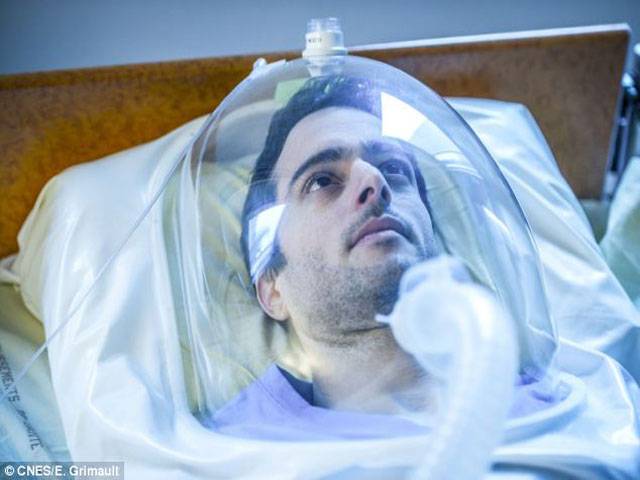TOULOUSE: A group of 12 ‘pillownauts’ are taking part in a scientific bed study during which they must spend a total of nine weeks lying at a six-degree angle below the horizontal. Lying at this precise angle has the same affect on the human body as flying in weightlessness.
Scientists at the Medes Institute in Toulouse, France, in collaboration with France’s CNES space agency, are hoping to test the physical effects weightlessness can have on astronauts during long spaceflights. The results may also be useful to help rehabilitate people who are bedridden.
Bedrest studies are part of the European’s Space Agency’s (ESA) Programme for Life and Physical Sciences. During three separate three-week periods over the course of a year, 12 volunteers lie on a bed that has been angled at six degrees below the horizontal. Lying at this angle mimics the affect flying in weightlessness has on the human body. The volunteers heads are placed at the lower end of the bed.
During each three-week period, the volunteers’ diet is strictly controlled by nutritionists, to see what affect diet can have on the body at this angle. Regular biopsies are taken from their thigh muscles to look at how weightlessness affects muscle tissue. The volunteers are not allowed any visitors.
Scientists also devise specific exercise routines, while the ‘pillownauts’ are lying horizontally, to combat the changes weightlessness has on muscles. For the bedrest study, the Medes Institute received 500 applicants.
This list of 500 was whittled down to 46 who then undertook medical and psychological tests. Based on the results a final 12 ‘pillownauts’ were selected.
Four volunteers were also put on a reserve list in case any of the chosen 12 had to drop out. The volunteers have already taken part in a three-week study.
They will be given four months of recuperation after the current 21-day period and will return in September to repeat the three-week study a third and final time. –DM






